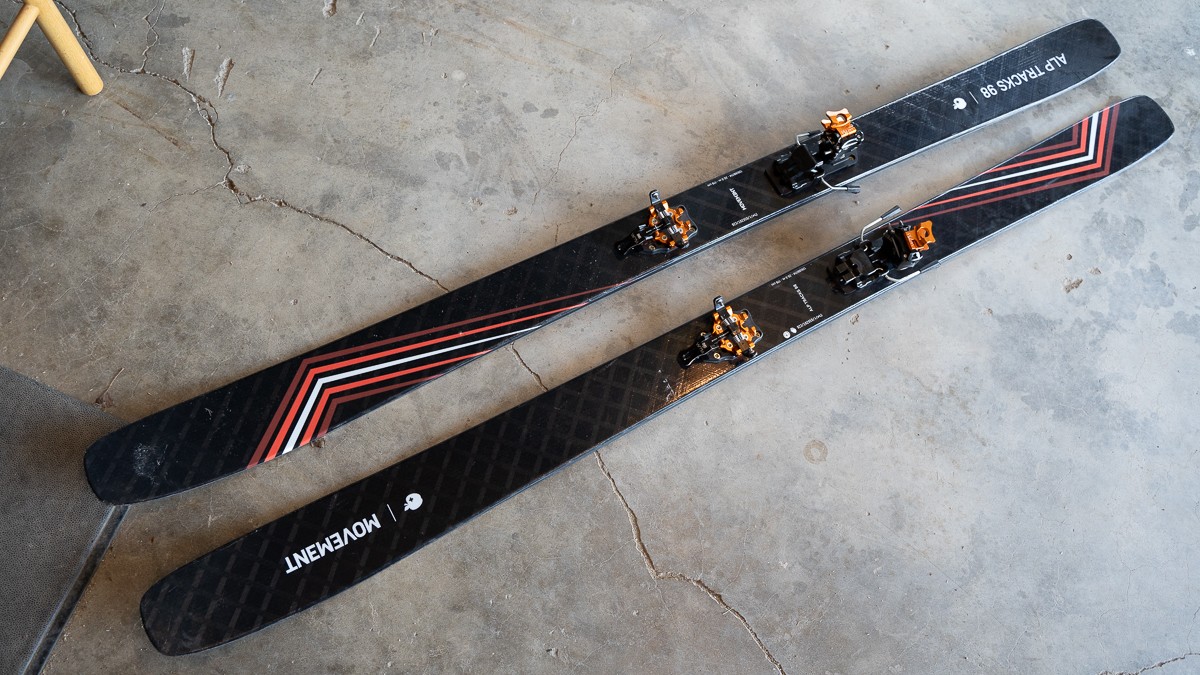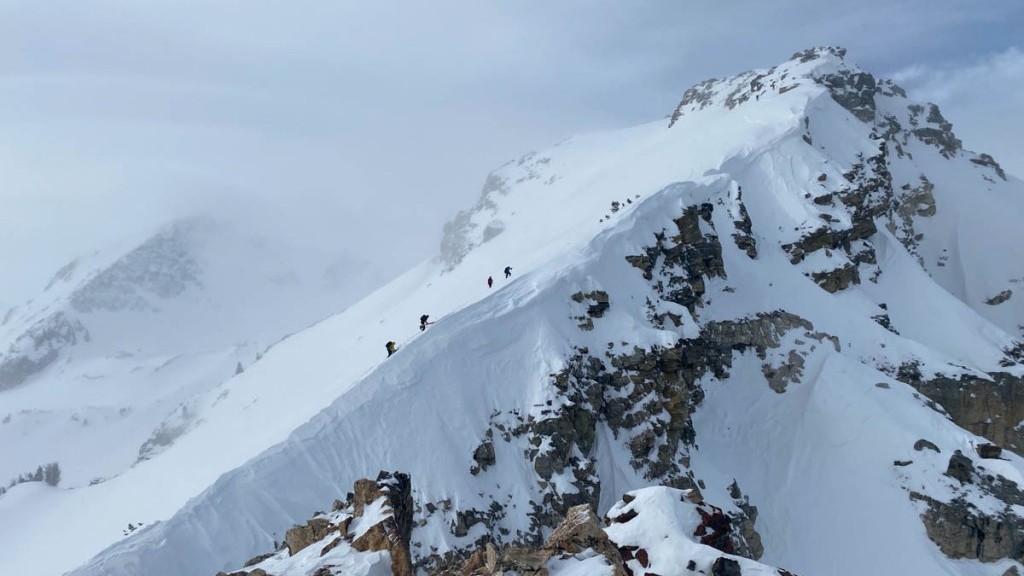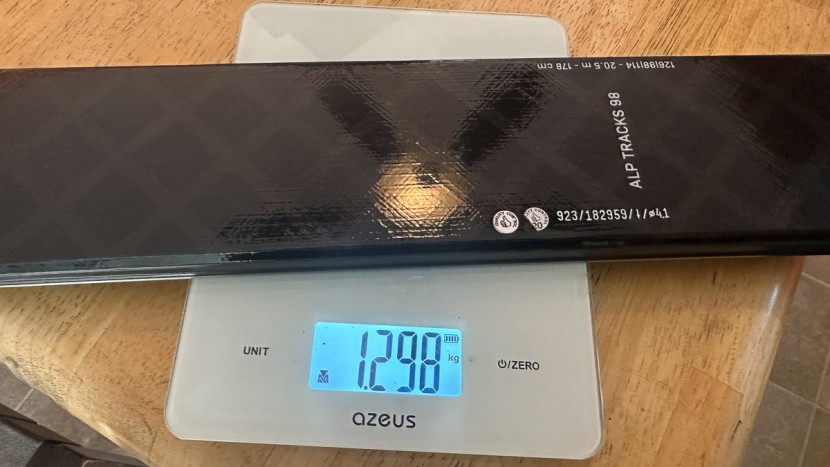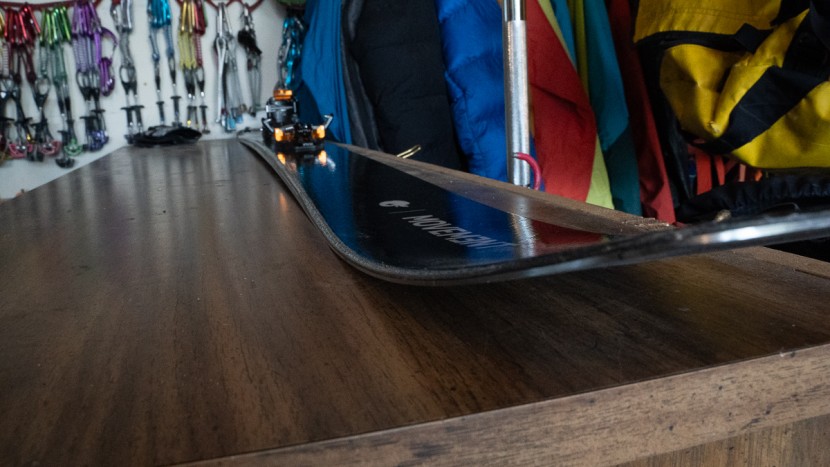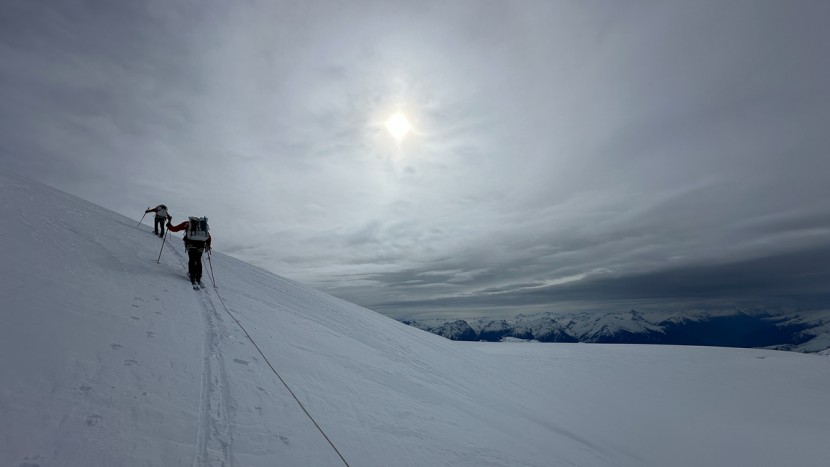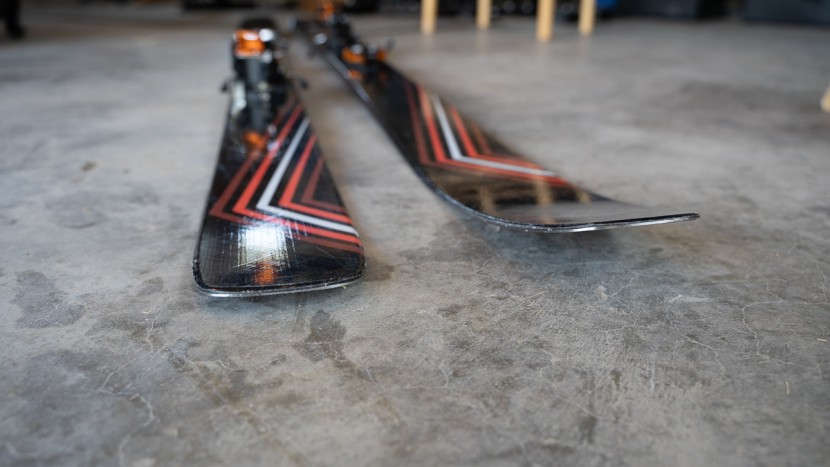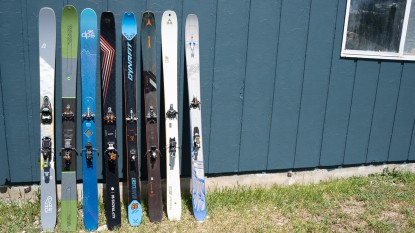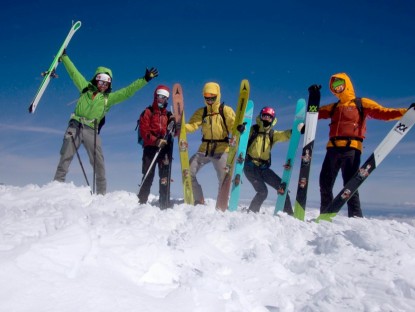Our Verdict
Compare to Similar Products
 This Product
Movement Alp Tracks 98 | |||||
|---|---|---|---|---|---|
| Awards | Best Overall Backcountry Skis | Optimized for Downhill Performance | Best Bang for the Buck | A Realistic Backcountry Ski | |
| Price | $701.99 at Evo Compare at 2 sellers | $719.96 at Amazon Compare at 3 sellers | $639.96 at Evo Compare at 2 sellers | $800 List | $900 List $599.97 at Amazon |
Overall Score  |
|||||
| Star Rating | |||||
| Bottom Line | You won't find any area where this reliable ski comes up short, and the weight is impressive for its size | This relatively wide all-season ski is one of our favorites and great for all-around human-powered use | Heavier skis that offer meaningful performance on the downhill, ideal for newer backcountry skiers or for experts who don't mind trading a bit of efficiency for a bit more fun | Reasonably affordable and great for a wide range of human-powered skiing, these are your backcountry "quiver-of-one" | If you have a truly wide-ranging ski habit and have realistic expectations of what you will find out in the mountains, consider these skis very closely |
| Rating Categories | Movement Alp Tracks 98 | Blizzard Zero G 105 | Salomon QST Echo 106 | K2 Wayback 106 | Atomic Backland 95 |
| Weight (25%) | |||||
| Firm Snow (20%) | |||||
| Powder (20%) | |||||
| Crud and Poor Snow (20%) | |||||
| Stability at Speed (15%) | |||||
| Specifications | Movement Alp Tracks 98 | Blizzard Zero G 105 | Salomon QST Echo 106 | K2 Wayback 106 | Atomic Backland 95 |
| Measured Weight Per Ski (g) | 1294.5 | 1513 | 1779 | 1436 | 1422.5 |
| Measured Length Tested (cm) | 178 | 178 | 180 | 179 | 175 |
| Measured Waist Width (mm) | 97 | 105 | 105 | 105 | 94 |
| Weight Per Surface Area Ratio (g/cm²) | 0.65 | 0.72 | 0.8 | 0.68 | 0.73 |
| Measured Weight Per Pair (g) | 2589 | 3025 | 3557 | 2872 | 2845 |
| Measured Weight Per Pair (lbs) | 5.7 | 6.7 | 7.8 | 6.3 | 6.3 |
| Manufacturer Claimed Length (cm) | 178 | 180 | 181 | 179 | 177 |
| Available Lengths (cm) | 170, 178, 186 | 164, 172, 180, 188 | 157, 165, 173, 181, 189 | 165, 172, 179, 186 | 161 ,169, 177, 185 |
| Measured Dimensions, Tip/Center/Tail (mm) | 126/97/113 | 133/104/118 | 140/105/125 | 131/105/120 | 126/94/114 |
| Manufacturer Claimed Dimensions (mm) | 126/98/114 | 133/105/119 | 136/106/126 | 132/106/121 | 128/95/116 |
| Turn Radius (m) | 20.5 | 23 | 19 | 22.3 | 18 |
| Construction Type | Semi-Cap | Sandwich | Sandwich | Semi-Cap | Semi-Cap |
| Core Material | Paulownia | Paulownia | Poplar, Caruba | Paulownia | Poplar |
| Rocker/Camber Profile | Tip and tail rocker, camber underfoot | Tip and tail rocker | Tip and tail rocker, camber underfoot | Tip and tail rocker, flat underfoot | Tip and tail rocker, camber underfoot |
Our Analysis and Test Results
In our comparative tests, the Alp Tracks 98 ski performed about as well in firm and poor snow conditions as the previous award-winning Alp Tracks 100. Unfortunately, it just wasn't as lively in powder snow. The performance for the weight of the 98-millimeter-waisted ski is really darn good – few skis are this light and perform this well across the board. We still hope that some company will reintroduce a ski that offers the magic the Alp Tracks 100 seemed to possess. The Alp Tracks 98 comes close, but it just isn't quite there.
Weight
In our experience with backcountry skis of the last decade, the ratio of weight versus downhill ski performance is non-linear. From 800 grams – which is a reasonable weight for a skimo ski – up to 1300 grams, downhill performance rises rapidly with every additional gram. However, it begins to taper off at this point, with a second inflection point at around 1600 grams. For these reasons, we generally recommend all-around, human-powered skiers aim for around 1300 grams (if uphill-focused) and 1600 grams (if downhill-focused). On our calibrated scale, one of our test skis weighed 1291 grams and the other 1298 g – an average of 1295 g per ski, which translates to 2589 g or 5.7 lbs for the pair. The Alp Tracks 98 anchors the 1300-gram weight selection, making them a perfect selection for uphill-tuned touring skis.
Firm Snow
Edge hold on the Alp Tracks 98 isn't the tenacious attachment we want from skis we'll use on the steepest, iciest terrain, but that degree of edge hold is rare. On a late season on Wyoming's Rockchuck peak, our lead test editor enjoyed fast, firm, lightly softened corn snow over slope angles ranging from low 20 degrees up to 45 degrees. These skis stay very well centered on firm, steep snow; neither the tips nor the tails grab more than the other.
Powder
If it weren't for our experience with the older, 100 mm version of this ski, the Alp Tracks 98 would score higher in this metric. This may sound more subjective than we should be, but we simply know it can be done better. That said, we still liked the stability, float, and variety of turn shapes offered by the Alp Tracks 98. For their weight, we wish they were a bit more lively through short radius turns. Instead of being able to bob and float, we found ourselves steering these skis at higher speeds to keep these skis above the snow.
Crud and Poor Snow
To continue with the history lesson, the Alp Tracks 98 is infinitely better in tough snow conditions than skis of a similar weight 10 years ago. Sometime around 2016, 1200-1300 gram skis took a big leap forward as it pertains to skiing sloppy snow and busting through breakable crusts. We haven't necessarily seen a leap forward like that since, but we also haven't seen a regression. If your memory of superlight touring skis is based on experience from a while back, it's worth recalibrating with a ski like the Alp Tracks 98 – for the weight, these skis are excellent when the going gets tough.
Stability at Speed
You don't choose 1300-gram skis for their high-speed performance. However, in perfect snow conditions especially, you'll find that level of fun. More importantly, you don't have to size up to achieve stability at speed – if you're on the fence between two sizes, don't be afraid of the shorter version.
Should You Buy the Movement Alp Tracks 98?
Compared to any other backcountry ski in our review, the Alp Tracks 98 offers well-balanced performance across the board. More importantly, it does so at a very respectable weight. Although we consider this an exceptional all-around touring ski, it carries more of a specialty price tag. However, for ski guides or otherwise expert backcountry skiers, the Alp Tracks 98 may well be worthy of your investment.
What Other Backcountry Skis Should You Consider?
The Alp Tracks 98 fills an important market segment for lightweight touring skis, and there aren't many close competitors in our lineup. You'll have to add significant weight to get appreciably better downhill performance than you get with these skis. For an extra 130 grams per ski, the Atomic Backland 95 offers better performance in firm snow with the same well-balanced downhill execution in other conditions. Expect similar performance from the Black Crows Camox Freebird, although an additional 215 grams more per ski improves performance in poor snow conditions. Although you suffer a weight penalty, it is important to point out that both of these skis are significantly cheaper than the Alp Tracks 98. Otherwise, there's a whole host of skis around 1600 grams and 105 mm underfoot that will ski better in soft snow and similarly in firm snow but, of course, require more energy to lug uphill.


